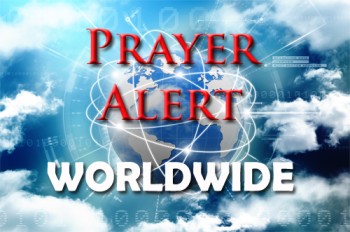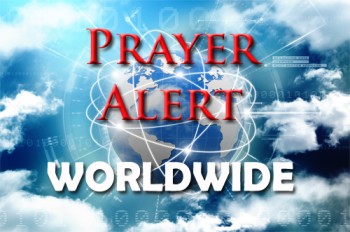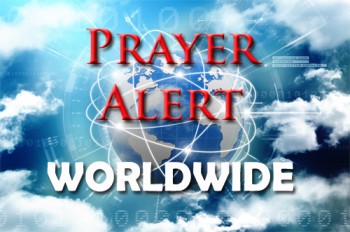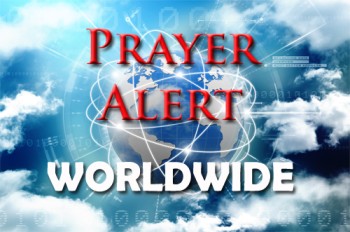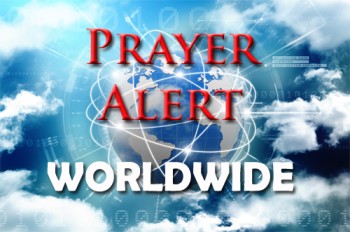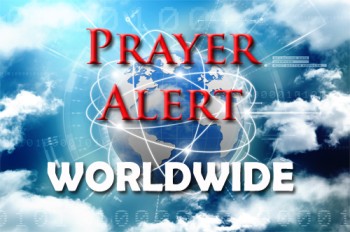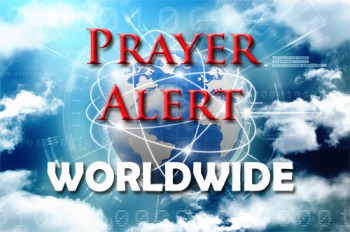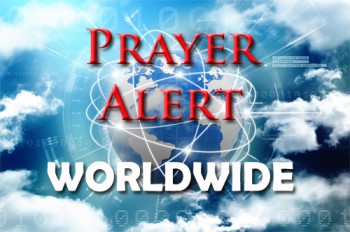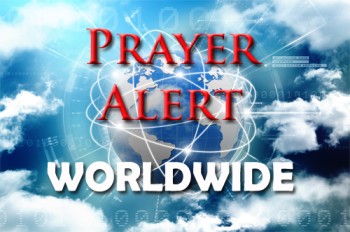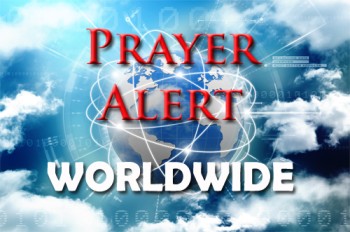Displaying items by tag: Africa
Sierra Leone: weekend coup attempt foiled
The information minister has declared that attacks on several locations in the capital, Freetown, were in fact a failed coup attempt led mainly by bodyguards of the previous president, Ernest Koroma. On 26 November they attacked a military barracks and a prison, freeing over 200 prisoners, but by the next day calm had been restored by the security forces, with most of the attackers killed or captured. President Bio remains unharmed. Sierra Leone, which is still recovering from a 1991-2002 civil war in which more than 50,000 were killed, has been tense since Bio was re-elected in June. The result was rejected by the main opposition candidate and questioned by international partners including the USA and the EU.
DRC: UN peacekeepers agree to withdraw
After nearly two decades, the United Nations Stabilisation Mission in Congo (MONUSCO) has signed an agreement to withdraw its 15,000 peacekeepers from the Democratic Republic of Congo. The foreign minister and MONUSCO's head finalised the deal, marking the end of a collaboration that struggled to bring lasting peace to eastern Congo, a region plagued by a long-standing conflict involving numerous armed groups, some backed by neighbouring countries. With upcoming elections in December, the conflict has taken centre stage, prompting the incumbent president Félix Tshisekedi, to call for the UN peacekeepers' accelerated withdrawal; the government has cited ‘unsatisfactory results’ to justify this request. Tensions between the UN mission and the local population have often flared, resulting in deadly protests. The exact timing of the withdrawal has not yet been agreed.
Kenya: surprise public holiday to plant trees
On 13 November a government-led initiative saw citizens planting seedlings in Nairobi, even under heavy rain, following the declaration of a public holiday dedicated to tree planting. This effort, part of president William Ruto's pledge to plant 15 billion trees by 2032, aims to increase forest cover and combat the effects of a severe drought in the Horn of Africa. The tree planting day was intended as a patriotic contribution to national climate change efforts. However, Ruto's environmental commitment is under scrutiny due to his controversial decision to end a nearly six-year moratorium on logging. This move, which he argues is necessary for job creation and practical use of mature trees, has met criticism from environmentalists. Despite the environmental impact, the forestry and logging sector is significant for Kenya's economy, employing many people directly and indirectly. The decision to lift the ban reflects the government's struggle to balance environmental conservation with economic and employment challenges amidst high inflation and unemployment.
Liberia: close race in presidential election
Votes are being counted in the presidential run-off election between incumbent George Weah and ex-vice president Joseph Boakai. The election, held peacefully on 14 November, saw more than 2.4 million voters choosing between Weah, 57, seeking a second term, and Boakai, 78. Weah, formerly a famous footballer (World Player of the Year in 1996), is popular among young people but must defend his record in office, while Boakai is an old hand who has worked in both the public and private sectors. At the time of writing results showed Boakai in the lead with 50.6% of the votes, but the final result is still uncertain. The first-round vote in October was close, with Weah leading Boakai by only 7,126 votes: in 2017 he had defeated him easily. The elections are the first since the UN ended its peacekeeping mission, created after more than 250,000 people died in two civil wars between 1989 and 2003. ECOWAS, which monitored the election, highlighted the peaceful conduct but expressed concerns about premature victory claims and potential post-election violence.
Cameroon: 20+ killed by English-speaking separatists
On 6 November more than twenty people, including women and children, were killed in an attack by English-speaking separatists in western Cameroon. Since the end of 2016, this area (populated mainly by the English-speaking minority) has seen a deadly conflict between pro-independence armed groups and the security forces. Each side has been accused of crimes against civilians by international NGOs and the UN. The government said that the ‘terrorists’ attacked using firearms and traditional weapons, and burnt down around ten houses. A resident thought the attack was probably made on that day because it was the anniversary of Paul Biya's accession to power as president; he added that a meeting of the RDPC (the all-powerful presidential party) had been scheduled to take place nearby. Cameroon, which has a population of nearly 30 million, has been ruled with an iron fist for 41 years by Biya.
East Africa: German president apologises for killings, King Charles ‘regrets’
During a visit to southern Tanzania, German president Frank-Walter Steinmeier apologised and asked for forgiveness for colonial-era killings during Germany’s rule. He vowed to raise awareness of the atrocities in his country, in a step towards ‘communal healing’ of the bloody past. Tanzania suffered under German colonial rule for decades, and saw one of the region’s deadliest uprisings from 1905 to 1907. During the revolt, known as the Maji Maji Rebellion, between 200,000 and 300,000 Indigenous people were murdered by German troops. Steinmeier said Germany was ready to begin a ‘communal processing’ of the past, as he met with descendants of an executed leader of the revolt. In contrast, on a state visit to Kenya, King Charles III expressed ‘deep regret’ for the ‘abhorrent and unjustifiable’ acts of violence committed during the 1952-1960 Mau Mau revolt, in which 90,000 Kenyans died, but stopped short of apologising or proposing reparations. See
Sudan: UK describes ‘ethnic cleansing’ in Darfur
Recent analysis of satellite and social media data reveals that at least 68 villages in Darfur have been set on fire by Sudanese armed militias since the civil war began in April. The UK minister for Africa, Andrew Mitchell, said this bore ‘all the hallmarks of ethnic cleansing’ - the first time the government has used the term to describe what is happening in Sudan. General Abdel Fattah al-Burhan, who leads the Sudanese Armed Forces (SAF), said that he would cooperate with the International Criminal Court (ICC) to bring those guilty to justice. Much of the ethnic violence is blamed on militias which are part of - or affiliated to - the Rapid Support Forces (RSF), the paramilitary group fighting the SAF for control of the country. The RSF has repeatedly denied any involvement in the violence in the region and has called for an independent international investigation. The analysis has been carried out by the Centre for Information Resilience (CIR), which uses Nasa heat-recognition technology and satellite images to identify fires and matches them with images on social media.
Algeria: church leader convicted
Church leader Rev Youssef Ourahmane has been convicted of holding an unauthorised religious assembly and sentenced to two years’ imprisonment and a fine equivalent to approximately £600. He is vice-president of the Èglise Protestante d’Algérie (EPA), an association of around 45 Algerian churches which have been suffering under a severe crackdown that began in 2017. Many EPA-affiliated churches have been forced to close. In March 2023 a small number of Christian families spent three days in a church compound under Rev Youssef’s supervision. The small church in the compound had been sealed by order of the provincial governor in 2019. The pastor was charged with holding an unauthorised religious assembly and holding worship in a building not permitted for worship. He was convicted in absentia and was not informed of the court hearing or the verdict until mid-September. He has appealed the verdict: a hearing date has been set for 19 November.
Uganda: opposition leader detained?
Uganda’s main opposition party, the NUP, has said its leader Bobi Wine was detained upon returning from a trip abroad. The singer-turned-politician arrived at Entebbe airport on 5 October after visiting several countries, including South Africa. A photo appeared to show two men seizing him by the arms on the tarmac. However, the police said he was ‘successfully escorted by our security team’, and urged people to disregard rumours of his arrest by ‘propagandists’. In September the police announced they were banning rallies being organised by the NUP across the country because of public order issues. There is a long history of authorities using so-called ‘preventative arrest’ to detain opposition leaders, often holding them for several hours before returning them to their homes so as to stymie mass demonstrations. Bobi Wine, whose real name is Robert Kyagulanyi, is a prominent critic of President Museveni’s government. He ran unsuccessfully for the presidency in 2021 against Museveni, who is serving a sixth term in power.
Niger: Macron orders military exit
French president Emmanuel Macron has announced the withdrawal of French troops from Niger and the repatriation of the French ambassador, following a military coup in the country. He stated that France would end its military cooperation with the de facto authorities in Niger, citing their lack of commitment to fighting terrorism. The decision comes after weeks of tensions with the junta and a deteriorating situation. Macron specified that the soldiers stationed in Niger would return to France in an orderly manner over the coming weeks and months, with the goal of completing the withdrawal by the end of the year. The announcement was met with joy in Niamey, the capital of Niger, as thousands of people rallied in support. Macron's decisions were made in coordination with Nigerien president Mohamed Bazoum, who remains under house arrest, and leaders of the Economic Community of West African States (ECOWAS).
